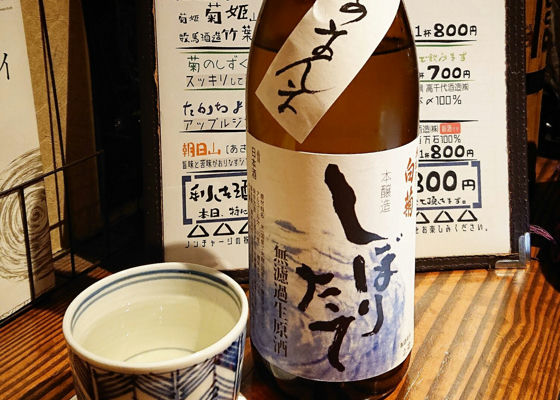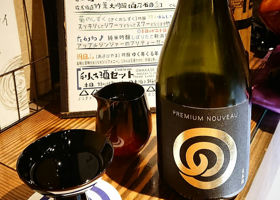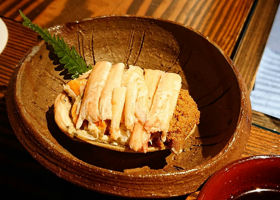Timeline
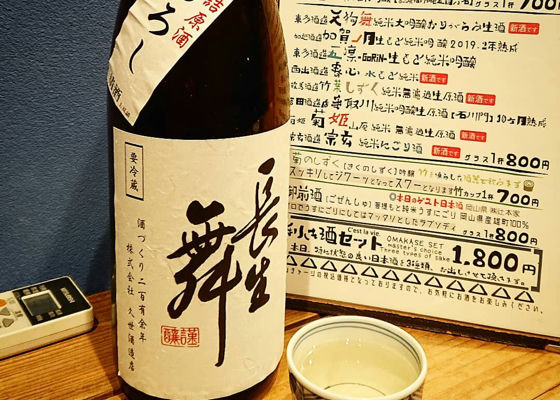
根本祐二Chosei-Mai Dai-Karakuchi Honjozo Nama-Zume Genshu
~Aged for 5 months
Rice polishing ratio→65
Rice for sake brewing → Chosomai (our own rice)
Alcohol content→20.8
Yeast -> ?
Sake degree +10
In terms of sake degree
It is described as a big dry taste.
"Honjozo" and "Nama-zume Genshu".
The brewing alcohol gives it a dry taste.
The alcohol content is 20.8 degrees.
The alcohol content of the sake is 20.8 degrees.
It is a sake that can be felt by sake drinkers.
...And because it is "Hiyaoroshi"...
The high alcohol feeling is mellowed
Because of that, it is easy to drink (^_^;)
From growing the rice to brewing
We do everything ourselves, from growing the rice to brewing it, domaine style.
We use our own original rice, "Chosei Mai".
They use both hard water (well water) and soft water (fresh water).
They are very particular about using both hard water (well water) and soft water (fresh water).
From the scene of making rice
It might be interesting to drink it while imagining the scene of brewing
while imagining the scene of brewing (///ω///) 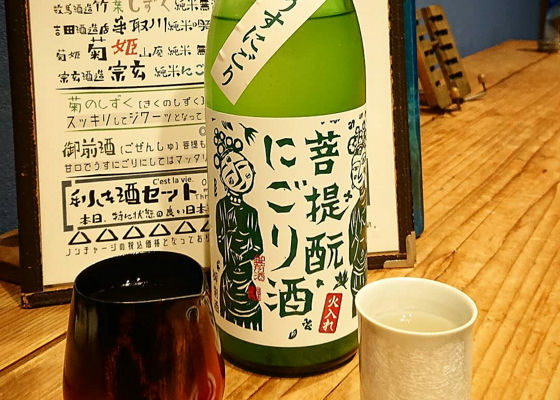
根本祐二Gozenshu "Bodega yeast mash" "Nigorizake
~Omachi Junmai Ushinigori
Rice polishing ratio→65
Preferred rice for sake brewing→Omachi
Alcohol content→17
Yeast -> ?
This time, the famous Gozenshu
I didn't know that this sake was made by
I can't believe it was made at all!
You've got to try it!
I heard that it won the gold medal at the "Delicious sake in a wine glass award 2012".
It seems to have won a gold medal at the "Wine Glass Tasty Sake Award 2012".
I also drank it the other day.
It has a completely different taste from "Shunshin" and "Hanaboe".
It has a completely different taste.
Even though it's been heat-treated.
At first, it was like nigorizake
It is slightly sweet
Fruity and gentle yogurt.
There is also a mild green apple aroma.
As the lactic acid disappears little by little
At the same time, the complex aroma and bitterness of "Omachi".
The acidity is also very mild.
Soft Calpis
I have been drinking Mizutakamoto and Bodashitakamoto
Maybe it was because they were raw sake.
Maybe that's why they had such a naughty taste?
Also, I was able to taste the sake at Enkawa.
Shunshin's Mizutakamoto was served in a square Kutani ware
It was served in a square drinking cup.
The mouth is also a thin sake cup.
It is very clear and
The sourness with a sense of transparency.
I was surprised to see how
I was surprised to see such a big change in this sake. 根本祐二Shiragiku of Okunoto Honjozo
Freshly squeezed raw sake, just as it is
Rice polishing ratio→65
Rice suitable for sake brewing → Gohyakumangoku
Alcohol content -> 19 degrees
Yeast >> ?
This is a log.
At "Japanese sake bar Engawa".
I didn't remove the "ori" as it was squeezed.
I didn't remove the oli.
It's sake as it is.
It has a rich sweet taste
and a very fruity aroma.
Because we don't remove the oli
so it is slightly cloudy. 根本祐二"Noguchi Naohiko Laboratory Premium Nouveau Unpasteurized Sake.
Rice polishing ratio→60
Rice suitable for sake brewing -> Gohyakumangoku
Alcohol content→19
Yeast -> ?
This is a log.
At "Japanese sake bar Engawa".
The legendary Noto Toji.
God of sake brewing.
Mr. Naohiko Noguchi.
The premium nouveau sake from Noguchi Naohiko Laboratory.
Premium Nouveau undiluted sake.
It's been a while since I drank it.
It's been a while since I drank it, so my impression from memory is
It has a very clean and refreshing taste.
Even though the alcohol content is high
It's a great impression that you don't feel it.
It was a great taste, but
I don't think I could drink it on a regular basis because of the price (>_<"). RecommendedContentsSectionView.title


